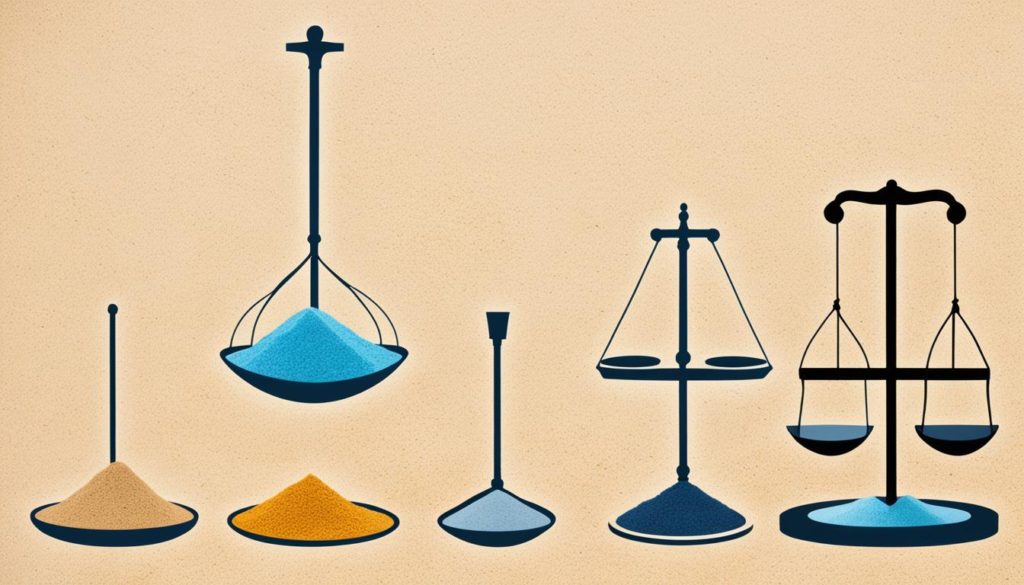Did you know that one in eight men in the United States will be diagnosed with prostate cancer during his lifetime? This fact shows how crucial it is to know about prostate cancer risk factors. These factors can help lower the chance of getting the disease. They include things you can change and things you can’t.
Prostate cancer risk factors include age, genetics, race, and lifestyle choices. Knowing what causes prostate cancer helps people take steps to lower their risk. By making lifestyle changes or understanding risks like age and family history, people can protect themselves.
Key Takeaways
- One in eight American men will be diagnosed with prostate cancer in their lifetime.
- Understanding prostate cancer risk factors is vital for risk assessment and prevention.
- Risk factors can be both controllable (lifestyle choices) and non-controllable (age, genetics).
- Knowing what causes prostate cancer can help in making proactive health decisions.
- Screening and early detection are crucial for better prognosis and treatment outcomes.
What Are Prostate Cancer Risk Factors?
Prostate cancer is affected by many things like age, genes, and lifestyle. Knowing these factors helps in lowering the risk of prostate cancer and managing family risks.
Age is a big risk factor, especially for men over 65. This age group gets a lot of prostate cancer diagnoses.

Family history is also a big deal. Men with relatives who had prostate cancer are more likely to get it too. Genes like BRCA1 or BRCA2 can make this risk even higher.
Race and ethnicity matter too. African American men face a bigger risk than others. Scientists are looking into why this is to find ways to help these communities.
What we eat and our weight also play a part. Eating well and staying at a healthy weight can lower the risk. Plus, scientists are studying how our environment and genes work together to affect prostate cancer risk.
| Risk Factor | Impact on Prostate Cancer |
|---|---|
| Age | Increases significantly after age 65. |
| Family History | Men with close relatives diagnosed with prostate cancer are at a higher risk. |
| Race/Ethnicity | African American men have a higher risk compared to other ethnic groups. |
| Lifestyle | Diet and obesity can contribute to an increased risk. |
Scientists are working hard to learn more about these factors. They want to find better ways to prevent prostate cancer and manage family risks.
Age and Its Impact on Prostate Cancer
Age is a key risk factor for prostate cancer, with more cases found in older men. About 6 in 10 prostate cancer cases happen in men over 65. This shows a strong link between age and prostate cancer. It’s important to know how age affects the disease’s start and spread.

Why Age Matters
As men get older, changes in the prostate increase the risk of cancer. In older men, prostate cancer often starts from changes that happen over time. This is why age is a big factor in prostate cancer risks. So, screenings and careful checks are key for catching it early.
| Age Group | Prostate Cancer Cases (%) |
|---|---|
| 50-64 years | 39% |
| 65-74 years | 44% |
| 75+ years | 17% |
Prostate Cancer Risk Factors
Understanding prostate cancer means knowing the main risk factors. Both genes and the environment play big roles in a person’s risk.
Key Risk Factors
Many factors are key to a higher prostate cancer risk. These include:
- Genetic risks: Family history is very important. Men with family members who had prostate cancer are at higher risk.
- Racial and Ethnic Demographics: African American men have a higher risk than other groups.
- Environmental influences on prostate cancer: Being exposed to certain chemicals at work can increase risks.
Interplay of Various Risk Factors
Prostate cancer risk comes from many factors working together. Genetic risks can get worse with environmental factors. For instance, a man with a genetic risk and exposure to harmful chemicals is at higher risk.
Lifestyle choices like diet and being overweight also add to the risk. This makes understanding and lowering prostate cancer risks complex.
Genetic Risks and Family History
Family history is key when looking at prostate cancer genetic risks. Men with a first-degree male relative who had prostate cancer face more than twice the risk of getting it too. It’s vital to know your family’s health history and share it with your doctor.
Some inherited gene mutations raise the risk of prostate cancer. Mutations in the BRCA1 or BRCA2 genes, usually linked to breast and ovarian cancers, also increase prostate cancer risk. These genes affect a small number of cases but call for careful health checks and early action.
Lynch syndrome is another genetic condition that raises prostate cancer risk. It’s often connected to colorectal cancer but can also increase risks for prostate cancer. Knowing about these genetic factors helps in making smart health choices.
Learning about prostate cancer genetic risks, especially from family history and genetic mutations, is crucial. Men with a family history or genetic mutations should think about genetic counseling and tests. Taking steps early can lead to better detection and treatment of prostate cancer.
Racial and Ethnic Disparities in Prostate Cancer
Racial and ethnic disparities in prostate cancer are a big concern. They show the need to understand how race and ethnicity affect prostate cancer outcomes.
African American Community
Prostate cancer is a big issue for African American men. They are more likely to get prostate cancer than other races. They often get diagnosed younger and die from it more than twice as often as others.
This situation calls for special health efforts and more awareness in the African American community.
| Ethnic Group | Incidence Rate | Mortality Rate |
|---|---|---|
| African American Men | Highest | More than double |
| Non-Hispanic White Men | Moderate | Moderate |
| Hispanic Men | Lower than African American and Non-Hispanic White Men | Lower |
| Asian American Men | Lowest | Lowest |
Other Ethnic Groups
Other ethnic groups face different risks for prostate cancer. Hispanic and Asian American men get prostate cancer less often than non-Hispanic white men. But, the reasons for these differences are complex, involving genetics, environment, and lifestyle.
To fix prostate cancer disparities across races and ethnicities, we need deep research and specific health policies.
Lifestyle Factors and Prostate Cancer
Looking into lifestyle factors and prostate cancer shows how our habits affect our risk. Diet is a big part of this. Studies on diet and prostate cancer show that what we eat can make our risk go up or down. Obesity also plays a big role, but it’s complex.
Dietary Impacts
There’s a lot to learn about diet and prostate cancer. Some studies suggest dairy products and high calcium might increase risk. But, the proof isn’t strong yet. On the other hand, eating lots of fruits and veggies might help lower risk.
| Dietary Element | Impact on Prostate Cancer Risk |
|---|---|
| Dairy Products | Possible increase in risk |
| High Calcium Intake | Potential risk factor |
| Fruits and Vegetables | Possible reduction in risk |
The Role of Obesity
Obesity and prostate cancer have a complex relationship. Being overweight doesn’t make you more likely to get prostate cancer. But, it might make the cancer worse if you do get it. Staying at a healthy weight is key to fighting the worst forms of prostate cancer.
Environmental Influences on Prostate Cancer Risk
Environmental factors greatly affect prostate cancer risk. Jobs like firefighting and farming increase exposure to harmful chemicals.
Chemical Exposures
Chemicals linked to prostate cancer are under close study. Research shows a strong connection between chemical exposure and prostate cancer. This is especially true for certain jobs.
Firefighters face dangers from combustion products. Farmers deal with chemicals from the land. Both groups see higher risks of prostate cancer. Arsenic and Agent Orange also raise these risks, showing the need for better work safety.
These discoveries highlight the importance of reducing chemical exposure. It’s key to lowering the risk of prostate cancer from work.
The Role of Inflammation and Infections
Understanding how inflammation affects prostate cancer is key to spotting big risks. Inflammation in the prostate, or prostatitis, and infections that cause it are being looked at closely. They might be linked to prostate cancer.
Prostatitis
Prostatitis means the prostate gland is inflamed. It’s being studied for its possible link to prostate cancer. Studies hint that ongoing inflammation might lead to cancer by harming cells and causing genetic changes.
Research is also looking into how sexually transmitted infections might raise the risk of prostate cancer. These infections can cause inflammation. Even though the exact link between prostatitis and prostate cancer is unclear, scientists are digging deeper.
| Factor | Description | Association with Cancer |
|---|---|---|
| Prostatitis | Inflammation of the prostate gland | Possible link to inflammation and prostate cancer |
| Sexually Transmitted Infections | Infections causing inflammation | Potential risk factor connecting infections and cancer |
The exact link between inflammation, sexually transmitted infections, and cancer is still being studied. But it shows why managing chronic prostatitis and safe sexual health are key. They might help lower the risk of prostate cancer.
Prostate Cancer Prevention Tips
Prostate cancer is a common cancer in men. But, there are ways to lower the risk. By making lifestyle changes and getting regular health checks, men can keep their prostate healthy.
Eating a diet full of fruits, veggies, and whole grains helps prevent cancer. Stay away from red meat and high-fat foods. Keeping a healthy weight is also key, as being overweight increases the risk of prostate cancer.
Exercise is important too. It helps control weight and boosts overall health. Quitting smoking and drinking alcohol in moderation are also good tips to lower prostate cancer risk.
Finding prostate cancer early can save lives. Men over 55 or with a family history should talk to their doctors about screenings. Regular tests can catch cancer early, making treatment more effective. For more info on prevention, check out this resource.
| Preventive Measure | Benefits |
|---|---|
| Healthy Diet | Reduces cancer risk, promotes general health |
| Regular Exercise | Controls weight, enhances overall well-being |
| Smoking Cessation | Decreases risk of numerous cancers |
| Moderate Alcohol | Prevents liver and prostate issues |
| Regular Screening | Ensures early detection of prostate cancer |
Talking to health experts about drugs or supplements can also help. But, always talk to a doctor before starting any new treatments.
Adding these tips to your daily life can greatly reduce your risk. Early detection of prostate cancer is key. That’s why regular health screenings are so important.
Conclusion
Understanding prostate cancer risk factors is key. We’ve looked at age, genetics, race, lifestyle, and environment. These factors show that some risks are in our genes, while others we can change.
Some risks, like age and family history, we can’t change. But, we can work on lifestyle choices. Eating right, staying at a healthy weight, and avoiding infections can help. These actions might change how prostate cancer affects us.
Learning more and doing research helps men make better health choices. New findings help us understand how to lower risks and improve health. By working together, we can learn more about prostate cancer. This leads to better health and a future where men are well-informed about their health.
FAQ
What are the primary risk factors for prostate cancer?
The main risks for prostate cancer are age, family history, and race/ethnicity. Men over 65 face a higher risk. African Americans and those with a family history are also at greater risk.
How does age impact the risk of developing prostate cancer?
Age is a big risk factor for prostate cancer. Most cases happen in men over 50. Men over 65 face a significant risk, making regular check-ups important.
What role does family history play in prostate cancer risk?
Family history is very important. Men with a first-degree relative who had prostate cancer face a higher risk. Genes like BRCA1 or BRCA2 also increase this risk.
Are there racial and ethnic differences in prostate cancer incidence?
Yes, there are big differences by race and ethnicity. African Americans are more likely to get prostate cancer and die from it. Other groups, like Hispanics and Asian Americans, have lower rates.
Can lifestyle factors impact prostate cancer risk?
Yes, your lifestyle can affect your risk. Eating a lot of dairy and being overweight might increase risk. But, eating well and staying healthy can lower it.
What environmental factors might increase prostate cancer risk?
Some environmental factors, like chemicals, raise the risk. Firefighters and farmers face higher risks from certain chemicals. Chemicals like arsenic and Agent Orange also increase risk.
What is the potential role of inflammation and infections in prostate cancer?
Inflammation and infections might be linked to prostate cancer. Research is ongoing to understand this connection better.
What are some tips for preventing prostate cancer?
To lower your risk, make healthy choices and get regular check-ups. Talk to your doctor about screenings if you’re over 55 or have a family history. Eating well and staying healthy also helps.


